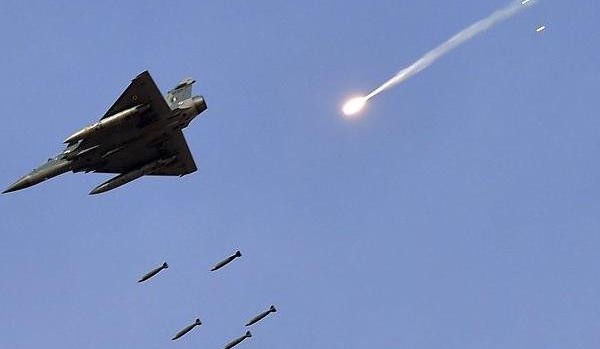India sends a strong message to Pakistan by striking at JeM camps
By Vijay Badhwar

Twelve Mirage-2000 fighter jets escorted by four Sukhoi Su-30 planes crossed the Line-of-Control (LoC) early morning at three am on February 26 to strike Jaish-e-Mohammed (JeM) terror camp in Balakot to avenge the Pulwama attack in which 40 CRPF personnel were killed 13 days ago.
It was a strike impatiently awaited by Indians hyped up by local media who played war drums non-stop baying for instant blood.
The soon-to-be held elections also demanded response that Modi Government could not but deliver. And the Government placated everyone as they achieved all objectives with restraint and diplomacy garnering along with world support for India’s actions.
While the PM did not dwell on his strong response that set a new threshold to go after terrorists, his oblique remarks at Churu in Rajasthan: “I know why are you happy,” conveyed it all.
PM Modi said that Indians were in strong hands with him. “I will not let you down,” he said reciting a poem, “desh ko na jhukne doonga”.
Indians celebrated on the streets welcoming India’s action that it was just and timely, most saying about Pakistan: “laton ke bhoot baton se nahin mante”.
Australia and France were at the forefront to support India’s action that was limited with specific objectives with no ‘civilian or military casualities’.
The media came up with unauthenticated figures, some initially claiming that the strike went on for 20 minutes and it wiped away the whole JeM camp spread over nearly six acres, killing 350 terrorists.
The air force operation took off from Gwalior for an added surprise element and took in total about one hour, remaining beyond LoC for approximately 8-10 minutes. They struck with air to surface Popeye missiles developed by Israel with ranges of 60-90 Kms.
The Pakistani response was muted, rebutting all Indian claims of a successful strike, calling it baseless, only to ‘placate Indian domestic audience and electioneering’.
The Pakistan Army confirmed that Indian fighter jets dropped four bombs but downplayed its significance with remarks that Pakistani radars had zeroed in on the jets and Indians had hurried to return dumping their payloads.
Pakistan PM Imran Khan called a special National Security Committee meeting and asked the armed forces to remain prepared for all eventualities. Their army chief, General Bajwa said that Pakistan would “respond at the time and place of its choosing”.
The situation at the border remains tense with continual shelling across the border and Indian armed forces responding in kind. There is strict curfew imposed in Kashmir.
Use of air strikes is a major shift in India’s response to cross-border terrorism. Crossing the LoC was avoided even during the Kargil war by the then PM Vajpayee. While it is more risk evasive, there is always a possibility of an escalation.
The latest outreach by India is a strong message to Pakistan that it can not allow its territory to breed terrorism that is today plaguing the whole world.
Short URL: https://indiandownunder.com.au/?p=12695
